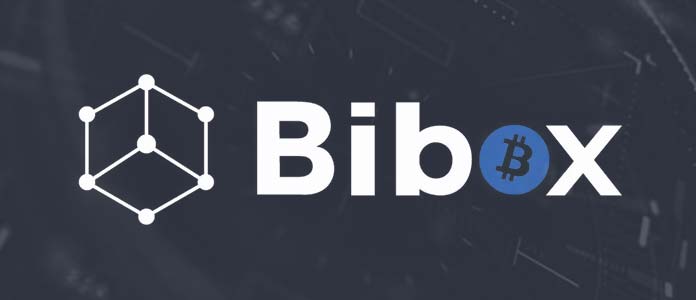Cryptocurrency Investing
Best Cryptocurrency News Websites Ranked & Rated For Peer Reviews

There’s no doubt that you have found yourself at an awesome time to start learning about cryptocurrencies. 2018 is set to be a fantastic year for these digital tokens, and there are riches to be made from investing in them.
The only downside to these coins is their volatility and the amount of sources to read about them. For this reason, we have put together a list of the most trusted news websites to stay afloat of what’s happening in the market.
Table Of Contents
Best Sources For Cryptocurrency News & Resources
Read on as we break it down for you.
CoinDesk
CoinDesk is one of the most popular news sites for feeling the pulse of the cryptocurrency market. The platform features its popular price index that shows the market price for Bitcoin across the most popular exchanges.
CoinDesk was started in 2013 by Shakil Khan and was subsequently purchased by the Digital Currency group in January of 2016. Every 3 months, CoinDesk posts a comprehensive report that goes over the market trends and events in private and public blockchain spheres.
CoinDesk is a new website, and as such, it is compatible with a diversity of different devices like desktop computers through to mobile phones. However, the CoinBase Android and iOS app will probably be your best option if you want to stay up to date on the latest news and its price movements.
Bitcoin Magazine
Bitcoin Magazine is another great online publication — even though it doesn’t come with a mobile phone application. Bitcoin Magazine was started in 2012 by Vitalik Buterin and Mihai Alisie. These two individuals were responsible for pioneering news and magazine publications for Bitcoin and other currencies. The brand is controlled by the BTC Media group that is located in Tennessee, United States.
Blockonomi
Bloconomi claims to be a source of information that is geared towards benefiting its readers. The brand’s concept came out of confusion that people feel when they learn about the cryptosphere for the first time. As such, Blockonomi has various pieces of featured content on its site that one can quickly skim through to get a better level of understanding for what’s happening in the market.
Bitcoin.com
Going by the sheer amount of visitors that Bitcoin.com gets on a daily basis, this website is by far the most trafficked, as it attracts millions of new readers per month. Its domain and branding certainly helps position it as a leader in its field. Bitcoin.com has also been the original news source for years and has been a great resource for curating news stories for the Bitcoin community.
Bitcoin.com is owned and operated by Roger Ver, who was an early Bitcoin investor. Ver invested a significant amount of his own money into Bitcoin, long before the media frenzy of 2017 and today. Roger was one of the main people behind the Bitcoin Cash hard fork.
Due to the owner’s interests in Bitcoin Cash, the site appears to feature more content about BCH than its Bitcoin predecessor.
CoinTelegraph
CoinTelegraph is one of the major players in the news market for Bitcoin. CT covers the major events in the market, and publishes a huge amount of content every month. The team at Cointelegraph consists of a staple of writers and editors who are able to write in a variety of languages including English, Korean, Japanese and more.
CNN
CNN and other traditional news outlets have taken a heavy interest in the reporting of cryptocurrencies. For example, CNN purchased the domain Cryptocoinnews.com and redirected back to their financial portal. From its beginnings in 2013, it has established itself as an authoritative source for news and gains more than 100k new visitors per day with its blend of content.
CNN also puts its partner sited Hacked.com to good use, as this site serves up daily trading tips and features articles on the most notable initial coin offerings (ICOs).
TheMerkle
TheMerkle was started in 2014 and has become one of the main commercialized news platforms. It contains posts that are both promotional and informational in nature, as well as keeping their readers up to date with the latest news. Unlike the corporations like CNN, TheMerkle only has a small team of writers who still manage to post at least 10 new articles per day.
Bitcoinist
Bitcoinist has a focus on Bitcoin, as well as the latest developments in the cryptocurrency market. The platform has one of the largest audiences of any of the sites we have discussed on this list, and its writing is high quality and investigative in nature. One defining feature of Bitcoinist is that their posts are typically shorter than its competitors, making them good for a quick read when you want to keep up to date with what’s happening.
CNBC and Forbes
Both CNBC and Forbes have slowly turned their attention towards the world of cryptocurrencies. These outlets have been publishing a large amount of content on a daily basis, and are competing successfully to be considered the number one resource for cryptocurrency news.
One great thing about CNBC and Forbes is that their content looks very authoritative and is high quality thanks to their standards of journalistic integrity.
If you didn’t know already, Reddit is one of the main websites for crowd-sourced content creation. It’s also a place where people come together to post in subreddits about niche topics, which includes Bitcoin.
It’s this decentralized nature of Reddit that allows it to circulate breaking news about Bitcoin and the blockchain as a whole. For example, if Litecoin suddenly surged in price, then you could go to /r/Litecoin and read a bunch of topics posted by redditors to explain the bull run. That’s just some of what Reddit can offer you, as there are hundreds of subreddits that each caters to a specific niche.
Some of the most popular sections include:
- /r/Bitcoin
- /r/Ethereum
- /r/ethtrader
- /r/Ripple
- /r/btc
- /r/BitcoinCash
- /r/Litecoin
- /r/Dashpay
- /r/NEM
- /r/NEO
- /r/IOTA
- /r/Monero
YouTube
For those who appreciate good video content, there are two channels that you should subscribe to: Boxmining and Ivan on Tech. These Youtubers produce quality content on a regular basis, and their channels are informative and unbiased.
Boxmining publishes the latest cryptocurrency news and analyses the price of these coins daily. He apparently has some insider connections in China that gives him an edge when it comes to the regulatory landscape in that country.
Ivan on Tech provides a different type of value. He is a programmer by profession and uses his expertise to outline the ecosystem of cryptocurrencies in a way that’s easy to understand as well as being insightful.
Cryptocurrency News Aggregators
The benefit of using a news aggregator for cryptocurrencies is that it can save you time and energy visiting all of these sites daily. An aggregator syndicates content across the web on the crypto sphere and puts them in one easy to read location.
#1 Bitcoin Agile – BitcoinAgile.com
Bitcoin Agile grabs content from all around the web and curates to a single page. The platform includes sources from the BBC, NYT, Wall Street Journal and other publications. You can easily get a snapshot of what’s going on in the market just by visiting their website.
#2 Coin Spectator – CoinSpectator.com
Another website to use for a glimpse of what’s going in the world of cryptocurrencies. Coin Spectator uses over 100 news sources to stay informed.
#3 GeekWrapped – GeekWrapped.com
This platform covers more than just cryptocurrencies, as it covers science and technology too. Geek Wrap organizes feeds, charts, and even Reddit threads together for quick consumption.
Cryptocurrency Influencers to Follow on Social Media
If you are an active user of social media, here are some top accounts to follow.
Andreas Antonopoulos
Andreas Antonopoulos specializes in information security. He is also a self-proclaimed hacker, pacifist and author. Antonopoulos has a hand in the future of Bitcoin and its crypto derivatives. He has published many works that relate to cryptocurrencies: Mastering Bitcoin and The Internet of Money. He also hosts a regular podcast called Let’s Talk Bitcoins, and advises a diversity of startups on blockchain technology. https://twitter.com/aantonop
Derin Cag
Derin is the owner of Richtopia, a company with the mission to enrich its customers lives through entrepreneurship and innovation. He is also a lecturer and has authored several books and business ventures. He is the owner of the Blockchain Age and Marketing Runners. The Blockchain Age is a digital consultancy for blockchain research, while Marketing Runner offers advisory services to medium and large enterprises. https://twitter.com/DerinCag
Brock Pierce
Brock Pierce is the managing director at Blockchain Capital, and is an executive at the Bitcoin Foundation. His involvement in the Bitcoin and crypto ecosystem gives him a unique position among the most notable cryptocurrency influencers. His expertise has awarded him advisory positions within several companies, especially for those that specialize in the development of the blockchain. https://twitter.com/brockpierce
Nicolas Cary
Cary is the president and partner at Blockchain. He also chairs Youth Business USA. His participation in the market has earned himself many investments in the Bitcoin environment, and has been invited to conferences and events that relate to digital assets. https://twitter.com/niccary
Susanne Chishti
She is the CEO and Founder at the Fintech Circle, which is a company that has a focus on digital investments. She is also the author of the Fintech Book and chairwoman of Fintech Circle Innovate. Her strong credentials in financial technology has made her an authoritative entrepreneur, investor, and mentor. https://twitter.com/SusanneChishti
Tim Draper
Draper is a well-regarded venture capitalist and is the managing director at Draper Fisher Jurvetson. He also the founder and chairman at the Draper University. His contributions to the cryptocurrency market began with a Bitcoin auction courtesy of the US Marshals. Draper jumped at the opportunity to invest, and purchased coins that would later be worth millions of dollars. https://twitter.com/TimDraper
Roger Ver
Roger Ver is part of a handful of investors that specialize in Bitcoin startups like BitPay. He is considered a key figure that supports the adoption of the blockchain, and firmly believes in its ability to enhance economic freedom. Ver’s company was one of the first to start accepting Bitcoins as a form of payment, and played a vital role in the creation of the Bitcoin Foundation. https://twitter.com/rogerkver
Joey Zhou
Joey Zhou is a leading expert in field of cryptocurrencies and cryptography. He also has experience managing finance and technology startups. Zhou is a partner at a number of firms: Cyborgenic, the Internet of Things, and Fintech. https://twitter.com/josephzhou
Dr. Julian Hosp
Dr. Julian Hosp is the co-creator at TenX. He is a medical doctor, as well as blockchain expert, speaker, and acclaimed author. Julian is recognized as a figurehead in the sphere of cryptocurrencies. His personal mission statement is to educate people in using blockchain technology and spearhead its adoption to the mainstream. https://twitter.com/julianhosp
Vitalik Buterin
Vitalik Buterin is the co-founder of the major cryptocurrency Ethereum, and launched the Bitcoin Magazine. His contribution to the crypto market started with his Bitcoin Magazine, and was the head writer during its inception. He then went on to co-develop Ethereum with his coding skills, and created the scripting language that it uses today for the creation of smart contracts. https://twitter.com/VitalikButerin
Joseph Lubin
Lubin is the other co-founder of Ethereum, which is considered by many as a disruptive technology that Bitcoin initially brought attention to. Like Bitcoin, Ethereum is decentralized in nature and expands on the coin’s original blockchain. These improvements allow for applications to be hosted on the Ethereum network, and includes facilitating and enforcing smart contracts. https://twitter.com/ethereumjoseph
Nick Szabo
Szabo is a recognized cryptographer that deals mainly in digital currencies. He studied computer science has been recognized for his contributions he made for the development of smart contracts. https://twitter.com/NickSzabo4
Cryptocurrency Investing
MetaMask: Ethereum ERC20 Token Wallet Browser Extension Beginner’s Guide
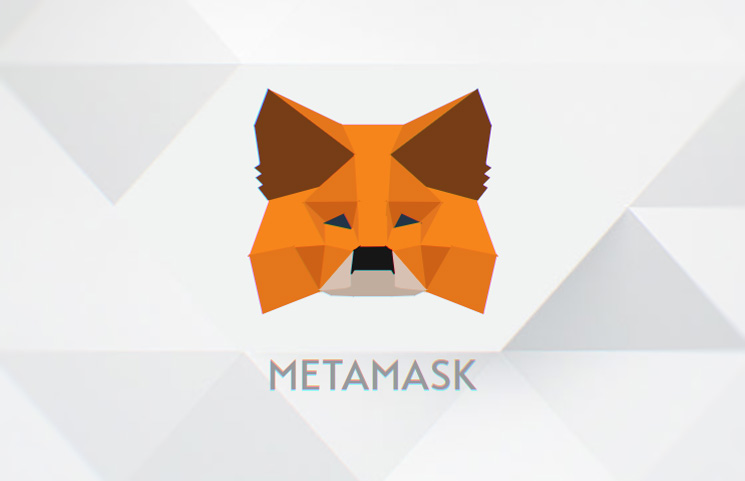
The Beginner’s Guide to MetaMask
For those new to Ethereum or perhaps even cryptocurrencies in general, the name MetaMask has probably already popped up in conversations. MetaMask is essentially a browser extension, and acts both as a wallet and access point to the Ethereum network. Explained even simpler, MetaMask is a hot wallet.
On the blockchain cryptocurrency networks, users can opt for a hot wallet (“live” or actively connected to the network) or a cold wallet (disconnected from the network). A wallet is necessary to store personal altcoins off exchanges or anywhere else after trading or transacting.
Although many early exchanges act as a bank for digital traders, current wisdom dictates that users maintain their funds offsite. In addition, a user will very often need to fund a trading account from a wallet, as many don’t allow for fiat or legacy payment protocols.
There are pros and cons to both, and current trends see most users employing the duo as their needs dictate. A hot wallet can be accessed and pilfered through phishing or user error, whereas a cold wallet is dead to the network, allowing no access at all. A cold wallet is also sometimes called a vault, as it’s silent, secure and access-restricted.
Many users will encounter the name when looking at ICOs, because ICOs are dominated by the ERC-20 token protocol. ERC-20 is a “type” of token, developed and employed on the Ethereum network, that has proven the most malleable and compatible token structure for crowdfunding purposes. The vast majority of ICOs, while employing their “own” tokens, are actually building those tokens out of the ERC-20 protocol.
MetaMask Details

Looking at a few nuances of the wallet, since it is an organic build from the Ethereum network, the MetaMask wallet will only hold ETH coins and other ERC-20 tokens of whatever origin. Bitcoin, for example, cannot be held in a MetaMask wallet.
The other major component of MetaMask is that it is a gateway to the Ethereum network. What this means is that all of the network’s dapps are available to use for MetaMask wallet holders. Dapps are “decentralized apps” and so named because their backend code is running on a decentralized network, in this case the Ethereum network.
If dapps seem obscure, examples would be the game Cryptokitties or casinos like Etheroll, a marketplace like OpenSea and of course digital exchanges like ForkDelta and IDEX.
Without a middleman like MetaMask, a PC’s browser can’t access the Ethereum network. Not unless a user runs a “full node” and installs the whole 400GB Ethereum blockchain on their PC.
The reason why MetaMask is known as a browser extension is because MetaMask injects a javascript library in your browser page. The javascript is called web3.js and written by the Ethereum development team.
Installation and Setup Of MetaMask

MetaMask is “open source,” which means anyone can view the code on GitHub. Currently, MetaMask functions on the FireFox, Chrome, Brave and Opera browsers. Links to MetaMask extensions for all relevant browsers are readily available on the MetaMask homepage. Once installed, the MetaMask logo will appear in the top right of the screen. Chrome, for one, will typically ask you to enable an extension, but these steps are all linked and users are done with a MetaMask installation in a minute or two.
Users don’t require a username when registering a MetaMask wallet, only a password. With MetaMask, a user’s password is called a “DEN.” although a clever play on words, since the logo is a fox’s face, although this appears to be more coincidence than any deliberate naming.
After creating a password, users are issued with a unique 12-word “seed phrase.” This is a bunch of words employed to safeguard a user’s account. It’s recommended that users stash their seed words in a competent password keeper like LastPass, or similar apps. Users can also generate multiple MetaMask accounts. Every account created by a user with MetaMask will share seed words and the password, but will have a different address.
Transacting With MetaMask

Paying someone or otherwise dispatching tokens from the MetaMask wallet is a simple matter. A single click on “Send” allows users to populate the subsequent screen with a user address. Send the funds and the transaction is done, and users receive a confirmation once the transaction is completed.
When interacting with dapps using MetaMask, provided a user is logged into their MetaMask account, they can access Ethereum network dapps automatically through their browser. Logging into a dapp like OpenSea, for example, the decentralized outlet for crypto collectibles, the dapp notes a user’s MetaMask address. There is no need to log into dapps separately, as the network has user intel integrated, recognizing an account holder wherever they go on the Ethereum blockchain.
MetaMask is free to use, users paying only the “gas” cost – the base cost of transacting on the Ethereum network. Gas is the fee required to effect any transaction on the Ethereum network. It is denominated in “Gwei,” one billionth of an ETH. Looking at overall UX, MetaMask is a reputable offering, with good support and a welcome absence of any dark press.
Protecting Your MetaMask Account
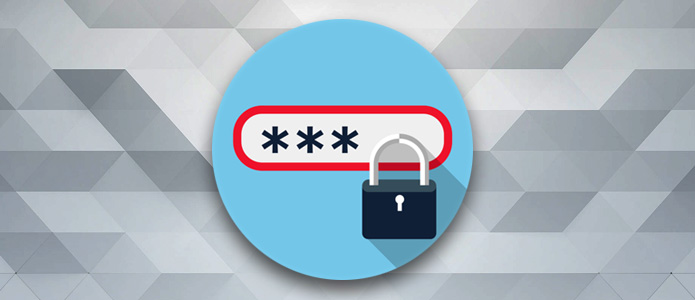
How Safe is MetaMask? In the world of cryptocurrencies, security is top of the list. Constant hacks and successful phishing attempts keep making the papers, while legislators are still battling to bring regulation up to the same level as legacy fintech. Since cryptocurrency thefts cannot be undone by identifying the thief and reclaiming funds, users should always have security uppermost in their minds when employing their MetaMask wallet.
It is advised to log out of a MetaMask account when it’s not being used. When a user is logged in, the account is considered “unlocked” and more vulnerable than when shut down. Open MetaMask accounts enable crooks to glean a user’s wallet address, token types, the wallet balance and especially transaction history.
Don’t be fooled into thinking that phishing can only happen via mail, however. Users should be aware of suspicious pop-ups or other notifications while signed into their wallet, as this can also be indicative of a phishing attempt.
Things like irregular pop-ups that ask a user to sign for a pending transactions are high risk. So too are messages telling users that their last transaction failed, then rerouting the repeat transaction to a different address. Much like cyber criminals emulate bank UIs and present with all the right logos and all the right colors in place, so too have there been instances of phony interfaces emerging.
For the best secure arrangement, users would employ a cold wallet like Ledger or Trezor Model T. For human reassurance, keeping the bulk of one’s altcoin holdings in a cold wallet can’t be beaten. That said, MetaMask has never suffered a hack nor had other instances of bad, sad press around lost funds and theft. To date, the wallet is impervious, and user losses stem from phishing attacks for which MetaMask can’t be blamed.
MetaMask Conclusion
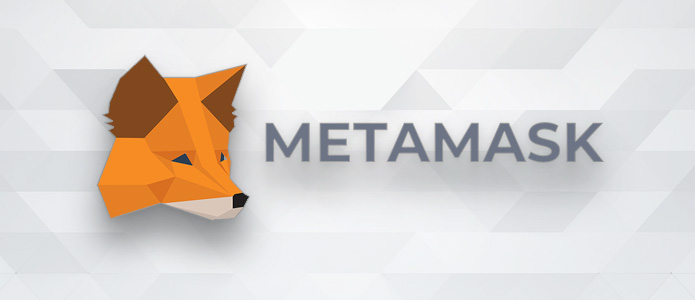
MetaMask is elegantly simple and easy to use. The wallet-stroke-network enabler has become the most popular and convenient route to navigating, paying and trading on the Ethereum network. Standing back and looking at the offer as a non-technical or, rather, non-crypto person might, as an offer it’s very simple and easy to install.
Even newcomers can quickly grasp the essence of it and get on with interacting on the Ethereum blockchain. MetaMask is intuitive and has been elegantly simplified because of its homegrown Ethereum nature. Any hot wallet, however, carries a higher risk than any cold wallet, and users should always have caution in mind when transacting via the wallet.
You can read more about MetaMask here: metamask.io
Cryptocurrency Investing
Top 6 Cryptocurrency Exchanges Using Own Coins For Reduced Fees

Best Cryptocurrency Coins Which Grant Dividend Or Reduced Fees In 2018
The cryptocurrency space has gained incredible momentum in the last few months. This is fueled especially by the existence of coins that not only earn dividends for the owners but also earn passive income while at the same time offering very low transaction fees.
Table Of Contents
6 cryptocurrency exchange coins and tokens that make money in the Crypto sphere are discussed below in detail.
KCS is a native token owned by KuCoin Cryptocurrency Exchange which is based out of Hong Kong. A total of 100 Million tokens of KCS were distributed during the KuCoin Initial Coin Offering (ICO) in 2017. KCS tokens are fundamentally ERC 20 tokens. The current value per token of KCS is US$ 4.78 and the market capitalization is approximately US$ 435 Million.
Holding KCS tokens is extremely advantageous for both Holders and traders. KuCoin Shares have a reward ratio for the holders. 10% goes to KuCoin, 50% goes to the KCS holder and 40% belongs to the referred individual. 10% of the Exchange`s profits are used in buying back the KCS and then burning the tokens. This means that KCS holders are further rewarded due to the appreciating prices.
Furthermore, Owners of KCS receive 50% reduction of the platform`s trading fees on all the volumes in the Exchange. Due to the referral system at the KuCoin Cryptocurrency Exchange, owners of KCS receive higher passive income.

Binance (BNB) Token
BNB is a native coin that is owned by Binance, which is one of the best cryptocurrency exchanges in the current Crypto market. Binance exchange was developed in China but relocated to Japan in September 2017. BNB has a current market value of US$ 11.82 and a market capitalization of US$ 1.3 Billion.
BNB is also an ERC 20 token with a fixed supply of 200 Million. During the Initial Coin Offering (ICO) in 2017, the BNB token was generated to fund the development of Binance Exchange. Owners of BNB token use it to pay for fees on the Exchange`s platform. These fees include withdrawal fees, Listing fees, Exchange fees and any other applicable fees.
Binance buys back 20% of BNB tokens in every quarter which the Exchange then burns until the total circulation reaches 100 Million. For holders of BNB, the total cost of trading at the platform is reduced by 50%. The owners of BNB also receive regular dividends when the BNB tokens are regularly burnt every quarter till the total supply goes back to 100 Million. The increased daily volumes at the Exchange further increase the benefits by providing an increased passive income.
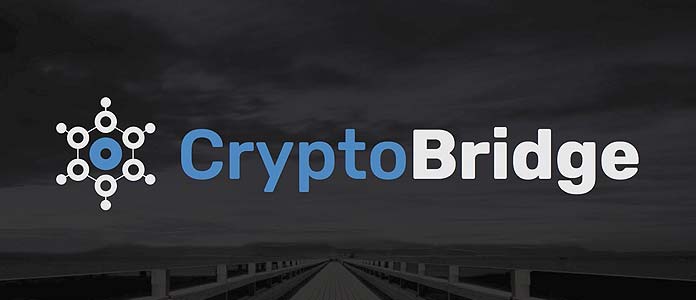
CryptoBridge (BCO) Coin
BCO is a native crypt-compatible coin created in July 2017. It is owned by the Decentralized Cryptocurrency Exchange (DEX) called CryptoBridge Dex which allows trading of most of the popular Altcoins. This Exchange utilizes the multi-signature federated gateway.
BCO coin is mineble and unlike KCS and BNB, it is not an ERC20 coin. BCO Coin has a current market value of US$ 1.64 and a market capitalization of US$ 45Million. Holders of BCO get 50% of the share bonus earnings of CryptoBridge Exchange when they stake their BCO coins.
For 3 months they receive 20% bonus, for 6 months they receive 50% bonus and for 12 months they receive 100% bonus. However, staking their coins for 1 month yields 0% bonus.
COSS Token
COSS is an ERC20 token that is owned by COSS Cryptocurrency Exchange located in Singapore. COSS exchange has matching features like Binance and KuCoin Exchanges. The Exchange is unique since it embraces plans of being a USD Exchange as well as payment processor.
The current market value of the COSS token is US$ 0.29 with a market capitalization of US$ 23 Million. The COSS Exchange retains and validates all the transactions that are initiated at the platform on the Ethereum Blockchain.
COSS has a great dividend program. The holders of the coin are paid 50% of the total earnings from the Exchange trading fees on a weekly basis. Additionally, holders can store their coins at the COSS Exchange platform or at an ERC20 enabled wallet such as MyEtherWallet.
CEFS token is another dividend earning token that is owned by the Cryptopia Exchange which is one of the most popular digital Exchanges trading numerous Altcoins. Cryptopia is headquartered in New Zealand.
CryptopiaFeesShares are very expensive and rare. The current market value is US$ 1,816 per token with a total supply of 6300 CEFS. The Cryptopia mining platform for cryptocurrencies is well streamlined and easy to use.
The holders of CEFS Token receive 4.5% of the monthly earnings from Cryptopia platform which is then distributed proportionately as per the CEFS holdings. Holding the token for longer periods leads to more returns.
Bibox (BIX) Token
BIX is a native token that is owned by the Bibox Exchange, an all enhanced-encrypted Exchange which was founded in China. It also has similar features like Binance. This exchange enables traders to trade numerous Altcoins. The exchange supports different languages like English, Chinese, Korean, Mandarin, Vietnamese and Russian. The Exchange is also unique since it has the capacity to trade cryptocurrencies while utilizing Fiat currency within the same medium.
The current market value of BIX is US$ 0.6 with a market capitalization of US$ 63M and a circulating supply of 105,918,066 BIX. The tokens are bought back and burnt regularly until the total supply reaches 271 Million.
Holders of BIX receive rewards in the form of fee reduction. BIX tokens have various uses especially in paying for the Exchange`s fees like Exchange fees, Listing fees and Withdrawal fees. The discount rates for using BIX are as follows: 50% in year one, 25% in year two, 12.5% in year three, 6.25% in year four and 0% in year five.
Our Final Thoughts
Conclusively, the best coin or token depends on the goal of an individual. For instance, an individual who is actively involved in trading is better suited to possess the BNB token while an individual whose purpose is passive income, then KCS is ideal. High volumes of the trading Exchanges will mean more dividends while the costs in trading and the referral systems will mean more passive income.
Cryptocurrency Investing
Top 5 Most Common Bitcoin & Cryptocurrency Scams in 2018

Cryptocurrencies have become a bit of hot cake. On one hand, lots of people are getting in and making a lot of money. Others are getting burned and losing their life savings in a bid to play in the markets and make a killing.
Most of those who do often invest in cryptos known as scam coins. These cryptocurrencies are designed to rip off people, and solely benefit their creators.
But because most newbies have no idea of how to identify the real moneymakers from the scams, many get burned, losing a lot of money in the process. This article is contains information on the more common cryptocurrency scams, show you how to identify them, and more importantly, teach you how to protect yourself, so you don’t get ripped off.
Types Of Cryptocurrency Scams
1. Cloud Mining Pools

Please understand that there are some legitimate cloud mining services out there. So, not all of them are bad. That said, this is one of the more common ways people lose their money.
These companies attract people who want to go into cryptocurrency mining, but have neither the time nor the money to buy and maintain their own cryptocurrency miners. So, these companies offer to help them mine, in exchange for a fee and a promise of the profits.
To identify the legit operations from the fraudulent ones, look for their registrants, company team lead and location. A major red flag is if you cannot find direct details when you do a whois lookup of their domain name.
But that alone isn’t enough. Look for transparency in terms of who runs what. Legitimate cloud mining services will have either their whois details available and/or information on the team managing the service.
Also be wary of companies registered in the US or UK, but with all team members resident abroad. If you cannot find a local address that’s verifiable, you might want to keep your money as that’s another red flag.
2. MLM Cryptocurrency Organizations

These are popping up all over the place and promising to make people instant millionaires. All participants have to do is get more people on board to invest in a specific cryptocurrency or a proxy project and they’ll profit from it.
The reality is that while there are legit multilevel marketing schemes, many of these crypto based MLM programs have no tangible product or service to sell. If the only thing they’re selling is a pyramid scheme, run and don’t look back.
3. Bogus Initial Coin Offerings (ICOs)

More and more people are realizing that they can make a lot of money from initial coin offerings. These people are taking advantage of the unregulated nature of the crypto space and the ease of creating tokens to launch ICOs.
In fact, it is estimated that over $1 billion has been invested in ICOs in the last 6-12 months, with many being unrealistic or downright fraudulent.
Unfortunately, many of these scammers are becoming more savvy and cleaning up their act by presenting a legitimate front –often with roadmaps, white papers, detailed information about their “projects” and other trappings that make their campaigns look legit. So, while it’s getting more difficult to spot the fake ICOs, it’s not impossible.
For starters, research thee company itself. If it’s been in business and has a good reputation, then you have a winner. If it’s new, has no reputation, and isn’t transparent about its processes, team or location, close that tab and keep looking.
Also, look at their management team and research them. Always go for those with well known and reputable team members. And if their promise or project sounds too good to be true, chances are it is.
4. Crypto Investment Packages

These are primarily bitcoin based and more formally known as bitcoin investment packages (BIPs). These are similar to cloud mining in the sense that they promise daily returns which are usually smaller percentages of your investment.
They often start out well to gain your trust, and then one day, disappear. This is another pyramid scheme designed to fleece you of your hard earned money. Users tend to fall for it by reinvesting their funds only to have their returns and payments gradually slow down and stop coming in altogether.
For these packages, we’ll say just walk away completely. And if you want to do this, just understand that it’s a short term Ponzi scheme and go in with your eyes open. For best results, get in at the very early stage, make your money, and cash out.
5. Pump and Dumps

These are projects created by individuals or consortium's for the sole purpose of driving the price wall up, and then cashing out once it reaches a predetermined price.
When you see cryptocurrency prices going up for no reason whatsoever, know that it’s a pump and dump in the making. If you want to partake, just make sure to get in early, enjoy the ride and cash out quickly. However, we don’t recommend investing in schemes like this at all.
There are communities that are solely dedicated to this. The go in and buy huge quantities of a certain cryptocurrency, watch the price artificially inflated and others get on board, then dump the coins after making a lot of money.
How To Protect Yourself From These Cryptocurrency Scams

There’s one simple thing to look for, and that is the use of cryptocurrency. Always lookout for the following when looking to invest in a cryptocurrency:
- An active community
- A development team dedicated to the project
- Transparency from the company
- Valid viable use case that solves actual problems
- History
Always research a cryptocurrency before investing in it. A simple search string like “[intended cryptocurrency] daily reddit” will be enough to show if they are legit or not. Also look for mentions in major news outlets, visible team leads with a track record of results in and/or outside the industry and backers.




